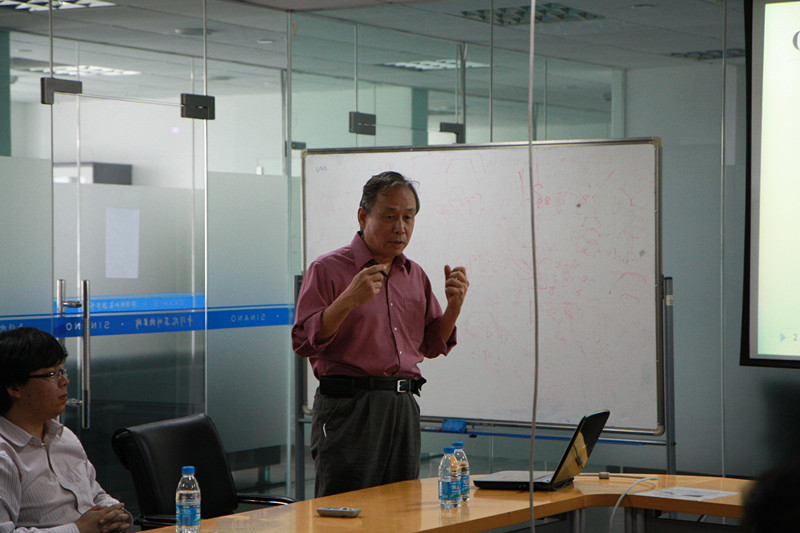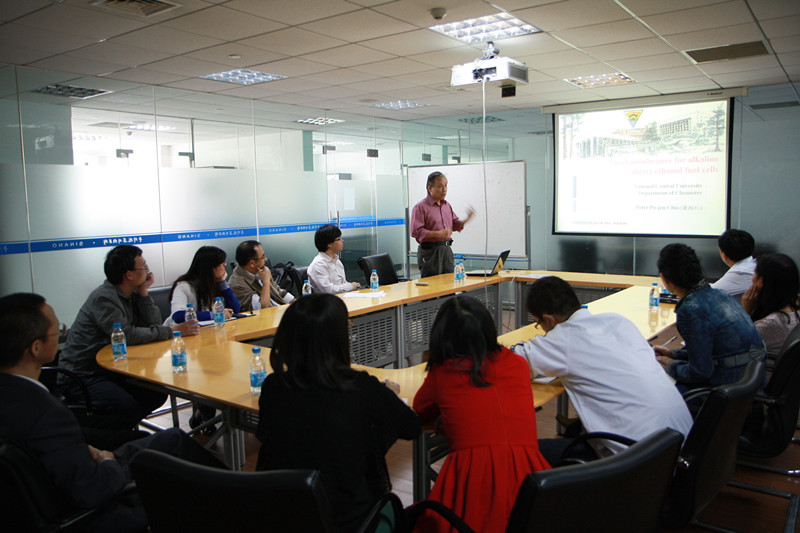Prof. Peter Po-Jen Chu from National Central University ,Taiwan was invited to visit Suzhou Institute of Nano-Tech & Nano-bionics, Chinese Academy of Sciences (SINANO) and gave a talk entitled "NOVEL MEMBRANE FOR DIRECT ETHANOL ALKALINE FUEL CELL” On October 24th, 2013. Prof. Deng Zongwu, the deputy director of Nanobionics Division presided the talk. Alkaline fuel cell receives growing attention in recent years, because it offers the potential to reduce fuel cell cost by using non-platinum based catalyst. However, ideal membrane that meets all requirements of alkali fuel cell is still absent. Variety of membranes systems are being explored which include anion exchange membranes (AEM), cation exchange membranes (CEM) and polyphenylene imidazole membranes (Alkali doped PBI). AEM has low thermal stability and the tendency to loss base functional group at high temperature. On the other hand, CEM and PBI suffer from lower OH- conductivity and the leaching-out of counter cation (Na+ and K+) after long-operation. Modification of Nafion-based CEM is the most advantageous, because it offers both durability and mechanical stability at high temperature. To circumvent the low OH- conductivity in the Nafion-based CEM, an AEM component made from bismaleic imide hyper-branched oligomer is physically cross-linked with alkali ion (K+) exchanged Nafion. This composite shows impressive OH- conductivity (0.6 S/cm) at elevated high temperatures mainly attributed to the base function of the hyper-branched oligomer augments OH- transport. Furthermore, the nano-structure imbedded in Nafion has effectively blocked the fuel (H2, methanol and ethanol) permeation while preserved adequate amount of water to sustain good ion conductivity at elevated temperature. This novel design has successfully married the advantages of both CEM and AEM in one composite which displayed strong membrane mechanical strength; displayed impressive conductivity in low humidity (or at elevated temperature) and reduced ethanol cross-over. Ethanol fuel cell performance using this composite membrane (5%-mBMI (72) / K-Nafion) is confirmed to be higher (80 mW/cm2) than that use K-Nafion membrane at 900C with 1M KOH /ethanol fuel. 

|

